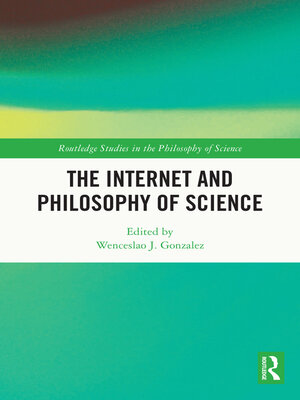The Internet and Philosophy of Science
ebook ∣ Routledge Studies in the Philosophy of Science
By Wenceslao J Gonzalez

Sign up to save your library
With an OverDrive account, you can save your favorite libraries for at-a-glance information about availability. Find out more about OverDrive accounts.
Find this title in Libby, the library reading app by OverDrive.



Search for a digital library with this title
Title found at these libraries:
| Library Name | Distance |
|---|---|
| Loading... |
From the perspective of the philosophy of science, this book analyzes the Internet conceived in a broad sense. It includes three layers that require philosophical attention: (1) the technological infrastructure, (2) the Web, and (3) cloud computing, along with apps and mobile Internet. The study focuses on the network of networks from the viewpoint of complexity, both structural and dynamic. In addition to the scientific side, this volume considers the technological facet and the social dimension of the Internet as a novel design.
There is a clear contribution of the Internet to science: first, the very development of the network of networks requires the creation of new science; second, the Internet empowers scientific disciplines, such as communication sciences; and third, the Internet has fostered a whole new emergent field of data and information. After the opening chapter, which offers a series of keys to the book, there are nine chapters, grouped into four parts: (I) Configuration of the Internet and Its Future, (II) Structural and Dynamic Complexity in the Design of the Internet, (III) Internal and External Contributions of the Internet, and (IV) The Internet and the Sciences.
Following this framework, The Internet and Philosophy of Science will be of interest to scholars and advanced students working in philosophy of science, philosophy of technology as well as science and technology studies.







